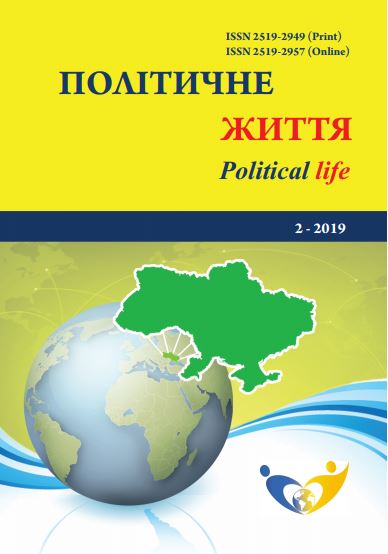Economic, political and social crisis of Europe in the 21st century.
DOI:
https://doi.org/10.31558/2519-2949.2019.2.12Keywords:
EU crisis, European identity, world political order, eurointegration, financial crisis, national statesAbstract
The article identifies current trends and prerequisites for the emergence of the European Union crisis in the 21st century. The research outlined in this article explains how and how controversial the process of European unification was; how the consequences of this process in the form of multiple intertwined crisis phenomena affect the current world political order in general and, in particular, Ukraine. The author has reviewed and analyzed the work of the Spanish post-Marxist sociologist, Manuel Castells, who specializes in the theory of the post-information society, together with other European authors – "Europe`s Crises". The authors of this book were intended to return to European integration, focusing on the period from 2008. to the present, and strove to understand the distinctive features of numerous crises that disturbed the peace of Europe during this period of time. The factors of the formation of the concept of European and national identity were considered. This article states that in the case of the EU, an attempt to impose the identity for the implementation of the European project has provoked strong resistance that threatened the project. The process of European integration achieved its goal, namely the prevention of wars and conflicts between its member states, but, perhaps, the integration was not as positive at the economic level as we could expect. It should be noted that today the EU needs a strategy to respond to migration and refugees, but cannot create it. This is recognized in EU documents, but the relevant directives have failed to implement this policy. The article states that the crisis in Europe is multifaceted: it is economic, financial, social and political crisis. And, as we can see, these are also cultural, intellectual and moral crises that affect the very essence of the values that define Europe and its identity. The fact that European crisis phenomena directly or indirectly influence Ukraine, its information presence and ideas of Europeans about Ukraine is unconditional.References
Bartlett, J., Froio, C., Littler, M. and McDonnell, D. New political actors in Europe: Beppe Grillo and the M5S. Demos UK. 2013. URL: http://www.demos.co.uk/files/Beppe_Grillo_and_the_M5S_-_Demos_web_ version.pdf?1360766725
Bellucci, P., Costa Lobo, M. and Lewis-Beck, M.S. Economic crisis and elections: the European periphery. Electoral Studies 31(3), 2012: 469–71.
Brown, S. and Gilson, C. Symbols, trauma and European identity. London School of Economics, 4 May, 2013. URL: http://blogs.lse.ac.uk/eurocrisispress/2013/05/04/symbols-trauma-and-European-identity/.
Charles F., Юркова О.В. КРИЗИ, основні концептуальні підходи до аналізування суспільних криз (з досвіду міжнародної політології) // Енциклопедія історії України: Т. 5. / Редкол.: В. А. Смолій та ін. НАН України. Інститут історії України. – К.: В-во "Наукова думка", 2008. – 568 с. URL: http://www.history.org.ua/?termin=Krizi
Europe’s crises / [edited by] Manuel Castells, [and five others]. Cambridge, UK ; Malden, MA : Polity Press, 2017. URL: https://lccn.loc.gov/2017012651
Hamann, K., Johnston, A. and Kelly, J. Unions against governments: explaining general strikes in Western Europe, 1980–2006. Comparative Political Studies, 2013, 46(9).
Held, D. Touching the fuzzy core. Theeuropean.EU. 2014. URL: http://en.theeuropean.eu/david-held/7981- European-identity-a-way-ofsolving-Problems.
Reif, K. and Schmitt, H. Nine second-order national elections – a conceptual framework for the analysis of European election results. European Journal for Political Research 1980, 8(1), p. 3–44.
Smith, K. Would Brexit spell the end of European defence? LSE, 2015. URL: https://blogs.lse.ac.uk/europpblog/2015/07/02/would-brexit-spell-the-end-of-european-defence/
Wieviorka, M. The Lure of Anti-Semitism, trans. K.C. Lobel and A. Declerck. Leiden: Brill, 2007. URL: https://brill.com/view/title/12821
Wilson, I. What should we expect of ‘Erasmus generations’? Journal of Common Market Studies, 2 July. 2011, 49(5). URL: http://blogs.lse.ac.uk/europpblog/2015/07/02/would-brexit-spell-the-endof-european-defence/
Шпенглер Освальд. Закат Европы. Образ и действительность. Том 1. URL: https://www.e-reading.club/ book.php?book=97744.

